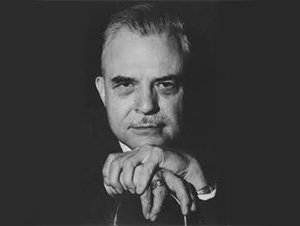History of Hypnosis
History of Hypnosis
Hypnosis is a natural state of the human mind.
For example, when you unconsciously drive to work without actively thinking about the route, this is a basic form of hypnosis.
In a hypnotic state, individuals become more suggestible and receptive to new ideas, allowing them to change their perception of issues requiring treatment. With modern science, hypnosis combined with psychological counseling has been proven highly effective and safe, gaining widespread trust.
Hypnosis has existed for thousands of years and has evolved significantly throughout different eras. Join Dream Weaver as we explore key moments in the history of hypnosis.
Ancient Times
1. Ancient Egypt and Greece
Some of the earliest recorded references to hypnosis date back over 5,000 years to Ancient Egypt. The Temple of Imhotep in the ancient city of Saqqara was an important healing center during the 3rd century BCE.
In these legendary civilizations, priests and healers used hypnosis-like techniques in sacred rituals and mystical healing ceremonies. These lengthy rituals involved drinking herbal potions and chanting rhythmic prayers for hours. The individual seeking healing was then guided into a special dark chamber to sleep and await a dream-revealed cure.
This practice eventually spread to Greece, where special "sleep temples" were built, dedicated to Aesculapius, the god of healing.
The Dream Temples of Ancient Egypt
2.The Medieval Period
Paracelsus (1493-1541): The renowned Swiss scholar and physician, Paracelsus, explored and utilized magnetism and magnetic forces in healing. This concept later became closely associated with hypnosis.
3. The 18th and 19th Centuries
Franz Mesmer (1734-1815): The Austrian physician Franz Mesmer was a pioneer in developing the theory of "animal magnetism," a natural energy he believed could be transferred from one person to another through mystical hypnotic sessions.
James Braid (1795-1860): The British physician James Braid coined the term "hypnotism" and explored the scientific mechanisms behind this phenomenon, paving the way for the modern era of hypnosis.
An 1856 Illustration of Austrian Physician Franz Friedrich Anton Mesmer (Foreground) with a Group of Psychiatric Patients.
4. 20th Century
Milton Erickson (1901-1980): The renowned American psychologist and physician, Milton Erickson, revolutionized modern hypnotherapy by developing and refining advanced hypnotic techniques. His innovative methods were skillfully applied in psychological treatment, shaping the future of therapeutic hypnosis.
Milton Erickson
Is Hypnosis Safe?
Hypnosis has been extensively researched and proven to be safe and effective in various fields, from medicine to psychology. Here are a few reasons why hypnosis is a reliable and secure therapeutic method:
Complete Control
During hypnosis, individuals retain full control over their actions and consciousness. They can exit the hypnotic state at any time if they choose to do so.
Professional hypnotherapists are trained with a client-centered approach, respecting the client’s mind, decisions, and behaviors. They serve as guides, offering suggestions and direction, but never imposing their own will on the process.
No Side Effects
Hypnosis does not involve any drugs or chemicals, making it free from unwanted side effects, ensuring absolute safety for health.
Therapeutic Support
Hypnosis has been scientifically proven to be highly effective in treating various conditions, including:
Pain management (need doctor refernce)
Quick smoking
Stress reduction
Improved sleep quality
Increased confidence and self-esteem
….
Scientific Evidence
Numerous reputable scientific studies confirm the effectiveness and safety of hypnosis. Prestigious medical organizations, such as the American Medical Association (AMA) and the American Psychological Association (APA), recognize hypnosis as a legitimate and valuable therapeutic method.
Conclusion
Modern hypnosis is not mystical magic but a scientifically backed technique that has been thoroughly studied and widely applied across various fields. With a rich history of development and strong scientific validation, hypnosis has become a trustworthy and effective therapeutic approach.
If you have any concerns about hypnosis, consult a licensed hypnotherapist or a medical professional for accurate guidance. With the right approach, hypnosis is not only a powerful tool but also a safe and effective therapy that can help you achieve success and happiness in life.



